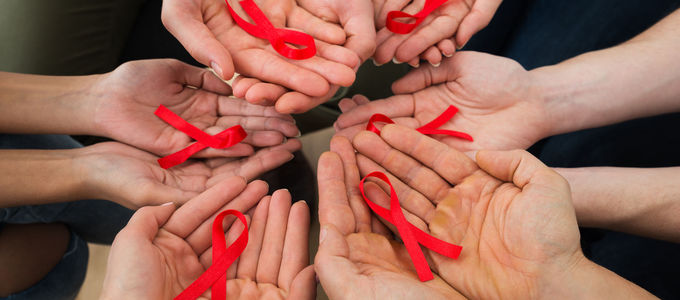
On 1 December, World AIDS Day reminds us that some 35 million people around the world are living with this disease. Approximately three million new infections are added every year. This is also a matter with which the New Apostolic Church is dealing — particularly in Africa.
The so-called “AIDS Guideline” of the New Apostolic Church dates back to April 2006. At the time, the International District Apostle Meeting passed resolution on a text for those affected. Among other things, it states that the Christian response to this serious illness must always be characterized by love and respect.
Not a “punishment from God”
The Church goes on to express its assessment that the disease is not a “punishment from God”. No one suffering from AIDS is excluded from the fellowship of New Apostolic Christians. On the contrary, all children and adults are welcome to all divine services, Sunday School, youth groups, and all other activities.
At the same time, the official document clearly outlines how infection can be prevented. In it, the Church recommends the use of condoms and speaks out against genital mutilation of women.
Collaborating with others to create awareness
The subject of HIV/AIDS and its effects has constantly occupied the Church in its endeavours, particularly in Africa. There have been, and still are, numerous awareness programs available for ministers and members in the congregations, especially in Southern Africa.
Seminars explaining prevention and protection measures are conducted regularly by medical practitioners and educators. In so doing, the Church collaborates with state and non-governmental organizations and networks at work in the fight against AIDS in the individual countries.
Showing solidarity
AIDS is a chronic, life-threatening disease that is caused by the human immunodeficiency virus (or HI-Virus, HIV). The HI-Virus damages or destroys specific immune defence cells. As a result, the body can no longer effectively fight off bacterial, viral, or fungal infections. The virus and the infection it causes are called HIV.
World AIDS Day is organized by UNAIDS and takes place on 1 December each year. The first such event took place in 1988. On this date, the most diverse organizations all around the globe remind people about the subject of AIDS, and appeal for people to take action and show solidarity with those who are infected and ill, as well as their loved ones.
Photo: Andrey Popov/fotolia




